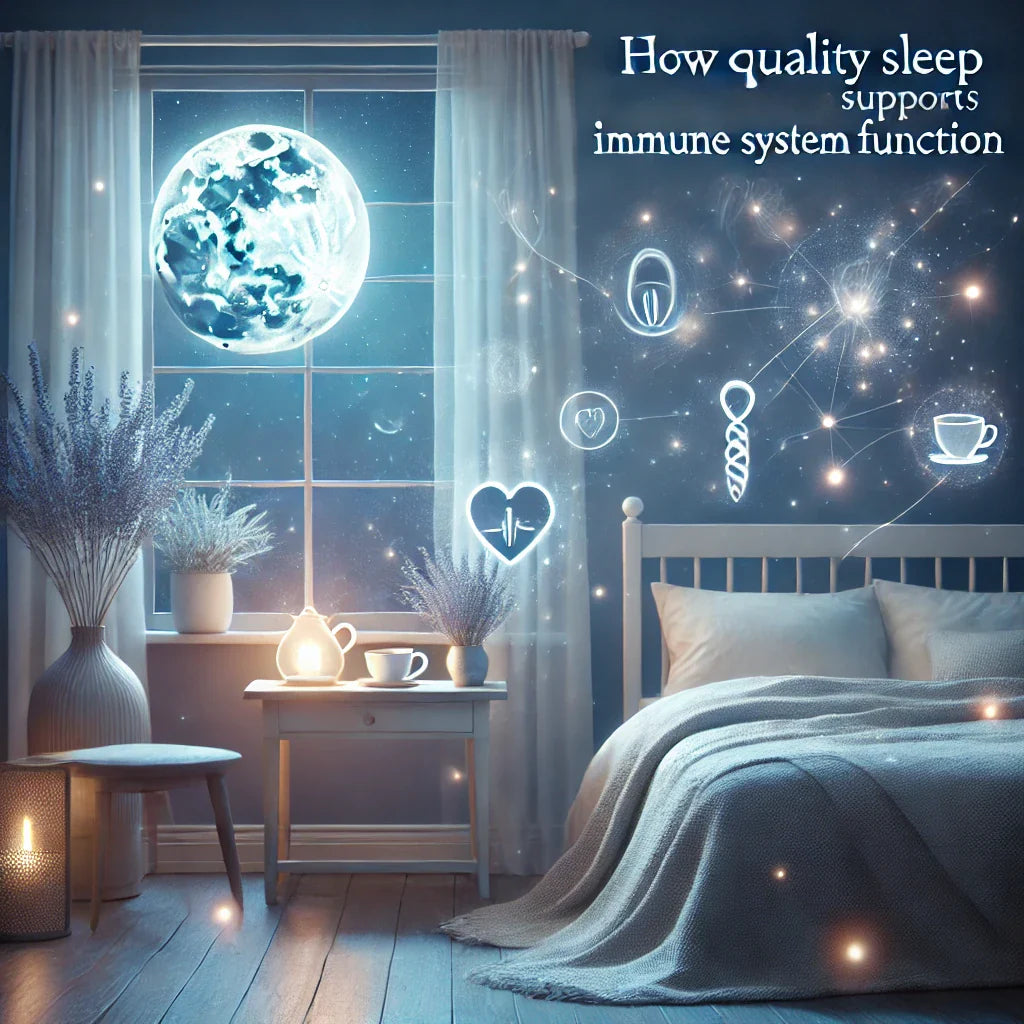
How Quality Sleep Supports Immune System Function
Share
Imagine this: your body has its own superhero team working tirelessly to protect you from harmful invaders like viruses and bacteria. This team is your immune system, and it thrives on quality sleep to function at its peak. Sleep isn’t just about feeling rested; it’s about giving your body the time it needs to recharge, repair, and strengthen its defenses. So, how exactly does sleep supercharge your immune system? Let’s find out.
The Powerful Link Between Sleep and Immunity
During sleep, your body is hard at work, preparing for another day of defending against potential threats. Here’s a glimpse into how sleep boosts your immune system:
-
Cytokine Production:
-
Think of cytokines as your immune system’s communication signals. These proteins are essential for fighting off infections and managing inflammation. Quality sleep ramps up their production, while poor sleep leaves your body defenseless.
-
-
T-Cell Activation:
-
T-cells are like your immune system’s elite soldiers, targeting and neutralizing harmful invaders. Sleep helps these cells stay sharp and effective, ready to battle viruses and bacteria.
-
-
Hormonal Harmony:
-
Sleep keeps stress hormones like cortisol in check. Elevated cortisol levels can suppress immune responses, but restful sleep helps maintain the balance your body needs to stay healthy.
-
What Happens When You Don’t Sleep Enough?
Sleep deprivation is like pulling the plug on your immune system’s power source. Without enough rest, your body’s ability to fight off illnesses takes a major hit. Here’s what can go wrong:
-
Fewer Infection-Fighting Proteins: Reduced cytokine levels make it harder for your body to fend off infections.
-
Weaker Antibody Response: Vaccines and natural immune responses rely on sleep to produce the antibodies that protect you.
-
Inflammation Overload: Chronic sleep deprivation can trigger persistent inflammation, raising the risk of conditions like heart disease and diabetes.
How Much Sleep Does Your Immune System Need?
The magic number for most adults is 7-9 hours of quality sleep per night. For children and teenagers, the requirement is even higher to support their developing immune systems. Think of sleep as your nightly recharge—the more consistent, the better.
Supercharge Your Sleep for a Healthier Immune System
You don’t have to leave your immune system to chance. With a few simple tweaks to your routine, you can optimize your sleep and give your body the tools it needs to stay healthy:
-
Stick to a Routine:
-
Go to bed and wake up at the same time every day. Consistency trains your body to follow its natural rhythm.
-
-
Create a Cozy Sleep Environment:
-
Keep your bedroom dark, cool, and quiet. Add blackout curtains or a white noise machine for extra comfort.
-
-
Ditch the Screens:
-
Reduce blue light exposure by avoiding screens at least an hour before bed. Instead, unwind with a book or calming music.
-
-
Relax Your Mind and Body:
-
Try meditation, yoga, or deep breathing exercises to ease stress and prepare for sleep.
-
-
Snack Smartly:
-
Avoid heavy meals and caffeine close to bedtime. If you need a snack, go for sleep-friendly options like a banana or almonds.
-
-
Stay Active, But Time It Right:
-
Exercise regularly to promote better sleep, but avoid intense workouts too close to bedtime.
-
-
Explore Natural Aids:
-
If sleep is elusive, consider natural supplements like melatonin or magnesium, but always check with a healthcare provider first.
-
The Bottom Line: Sleep Your Way to Stronger Immunity
Quality sleep isn’t just a luxury—it’s a necessity for a robust immune system. By prioritizing your rest, you’re giving your body the best chance to fight off infections, reduce inflammation, and maintain overall health. Start small by improving one aspect of your sleep routine today, and watch as your body rewards you with better energy, mood, and resilience. Your immune system’s superheroes will thank you!
